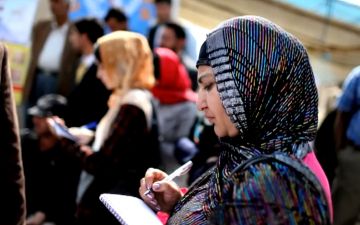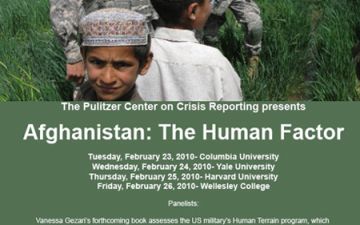Since 2007, an experimental Pentagon program has been sending teams of civilian anthropologists and other social scientists into the hardest-fought regions of Iraq and Afghanistan to pursue a mission that's both deeply controversial and increasingly important to U.S. military strategy.
Social scientists work within frontline combat units to gather information and advise soldiers about the workings of the local economy, tribal structures, cultural norms and other elements of what the military calls the "human terrain." Known as the Human Terrain System, the $300 million initiative grew out of a realization within the Pentagon that soldiers didn't know enough about the cultures in which they were operating to win the hearts-and-minds battles that are crucial to a successful counterinsurgency. Culturally relevant battlefield approaches have moved to center stage in Afghanistan, where General David Petraeus, the Princeton-educated architect of the Army's counterinsurgency doctrine, took command of U.S. and NATO forces this summer, and where 30,000 newly deployed U.S. troops are struggling to show progress in the face of rising opposition and growing impatience among Afghans and Americans.
The Human Terrain program represents the most audacious attempt to combine the strength of the military with the wisdom of the soft sciences since Vietnam. But critics say that social scientists working alongside military units violate ethical strictures and could put local civilians at risk. How the military and social scientists handle these and other issues will determine the program's future and test the military's readiness to fight smarter wars.



